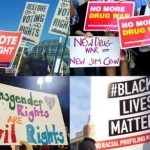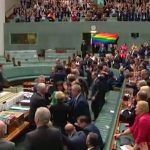China — For the first time, a Chinese court will hear a challenge against “gay conversion therapy.” This is in a country where same-sex relations were only removed from the list of mental illnesses in the early 2000s, reports GayAsia News.com.
Gay rights activists say this could be a legal milestone in their fight to stop it from being treated as an illness.
According to bbc.com, in the eastern city of Nanjing Dr Zhou Zhengyou of the Nanjing Urban Psychiatric Consultancy Centre, claims to cure up to 70 percent of his gay patients, although he says it is a long and difficult process.
He charges US$120 a session – a lot of money on an average Chinese wage.
Zhou says he uses counseling alone but is happy to describe how aversion-therapy offered elsewhere in China works.
“One common method is electric shock. When the patient has a gay thought, we electrocute them or inject them with drugs that make them sick,” he said.
It is this such treatment that China’s gay community is fighting against and China has allowed them to challenge gay conversion therapy in the courts.
“I had electric shock therapy only once,” the man bringing the case, who calls himself Xiao Zhen, told the BBC. “Imagine those who’ve had it many times.”
He put himself through the treatment in order to gather the evidence and he’s now hoping that a successful court ruling in his favor will effectively ban the practice.
Attitudes in China, though, are changing fast and Shanghai now holds an annual gay Pride event but the deeply held Chinese belief that children are required to marry and bear offspring to continue the family line means it is still heavily stigmatized.
Elsewhere in the world, therapies that purport to turn gay, lesbian or bisexual people straight have been discredited.
The American Psychiatric Association says undergoing such treatment risks depression, anxiety and self-destructive behavior. The United Kingdom Council for Pyschotherapy calls the practice unethical.
In China, where conversion clinics have operated for decades, there has been no such outcry from medical or official bodies.
Now the court case, it is hoped, will be another step forward, sending a message that such medical prejudices needs to stop.















